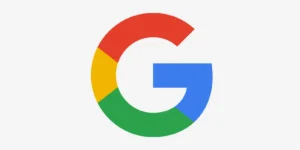Why Relying on Google Standards is No Longer Enough for Website Success
In the ever-evolving world of digital marketing, a lot has changed in the past decade. For years, SEO (Search Engine Optimization) was the holy grail of driving organic traffic to websites. Marketers and web designers alike poured countless hours into making sure their websites adhered to Google’s rigorous standards, hoping to secure that coveted spot at the top of the search engine results page (SERP). However, the game has shifted. And today, we’re here to tell you why “Google SEO is dead,” and why relying solely on Google’s ranking algorithm is no longer the be-all and end-all of online visibility.
The Rise of AI-Powered Search Results
First, let’s talk about AI. For the past few years, artificial intelligence has been quietly revolutionizing how search engines (including Google) deliver results. With the introduction of large language models (like OpenAI’s GPT), the focus is shifting away from keywords and traditional SEO practices toward smarter, more intuitive search engines. These AI systems are able to interpret user intent, analyze context, and provide more personalized, relevant search results—often before the user even finishes typing their query.
This shift has been accelerated by tools like Google’s own AI-powered features (e.g., Google’s BERT algorithm and more recently, the integration of generative AI into search results). Rather than simply matching keywords in your content to search terms, these algorithms are capable of understanding the nuance of human language and providing more accurate answers to complex queries.
For businesses that have long relied on a strict adherence to Google SEO standards, this creates a new challenge: it’s no longer enough to optimize content for a search engine that simply matches keywords to results. Your website now needs to adapt to a system that values how well your content answers a user’s questions and how well it aligns with AI-driven user needs. Content that answers “why” and “how,” rather than just “what,” is taking precedence.
The Death of Organic Search Results
In the past, a well-optimized website could expect to see its content featured in the organic search results on Google. However, organic search results are no longer the holy grail of online visibility. As Google continues to roll out new features, such as featured snippets, People Also Ask boxes, and the Knowledge Graph, the amount of real estate available for organic listings continues to shrink. Now, even if you rank #1, your website may not even be the first result users see.
In addition, paid advertisements are becoming more prominent on search pages, pushing organic results further down. If you’re relying solely on SEO to drive traffic, you might find your content buried beneath a sea of paid ads, map listings, and AI-generated results that Google prioritizes. The algorithm is no longer just about optimizing for keywords; it’s about optimizing for visibility in an increasingly competitive space.
Google’s Shift Towards Privatization: The Impact on Maps and Other Content
Another significant change that’s impacting SEO strategies is Google’s growing move toward privatizing content. Google has long been the go-to source for local business information via Google Maps and the Local Pack, but now, much of this valuable content is being locked behind Google’s paywall or integrated into paid features. For instance, businesses may find themselves forced to pay for prominence in Google Maps results, as well as for other content that once appeared freely in organic search results.
Furthermore, Google has been steadily increasing the amount of content it hosts directly on its platform, reducing the need for users to even visit third-party websites. Knowledge panels, direct answers, and product listings all feature prominently at the top of the search results, often preventing users from clicking through to your website altogether. This is a direct challenge to website owners who have relied on driving traffic through organic search. It’s no longer just about creating valuable content and earning a place on the SERP. You have to adapt to an ecosystem that’s becoming more walled off and commercialized.
Why Your Focus Should Now Be on User Experience and Value
With all of these changes in play, it’s clear that focusing solely on Google’s algorithm and SEO tactics isn’t enough anymore. The future of website marketing lies in providing genuine value to your users and creating meaningful experiences that go beyond just optimizing for search engines.
Here are a few things to focus on instead:
-
AI-Driven Content: Embrace AI and machine learning as a way to better understand your audience’s intent and craft content that answers complex, nuanced questions. AI can help create dynamic content that engages users in new, innovative ways.
-
User Experience: Design your website for humans first, not search engines. User experience (UX) is paramount, from fast loading speeds to intuitive navigation and mobile responsiveness. Google may still use page experience as a ranking factor, but ultimately, a great user experience will drive the most sustainable traffic.
-
Brand Authority: Rather than chasing Google’s ever-changing algorithms, focus on building brand authority and reputation. This means providing consistent value through quality content, community engagement, and strong customer service. Become an expert in your niche, and let your authority shine through.
-
Diversified Traffic Sources: Don’t put all your eggs in the Google basket. Explore other channels, such as social media, email marketing, influencer partnerships, and even paid advertising. A diversified approach will ensure you’re not entirely reliant on Google’s algorithm for success.
-
Embrace New Platforms: With the rise of AI and other content platforms, consider expanding your reach beyond Google. Platforms like YouTube, Instagram, TikTok, and even new AI-powered search engines are becoming more important for businesses looking to grow their online presence.
Conclusion: SEO is Evolving, Not Dead
To be clear, Google SEO isn’t “dead,” but it is undergoing a significant transformation. Relying on Google’s ranking algorithm to drive traffic to your website is no longer a one-size-fits-all solution. As Google’s search landscape becomes more AI-driven and privatized, businesses must adapt their strategies to focus on providing real value and creating authentic connections with their audience.
The future of web design and digital marketing is about more than simply ranking on Google—it’s about creating an online presence that thrives in an AI-driven, multi-platform world. Embrace change, stay ahead of the curve, and focus on delivering real, human-centric experiences that resonate with your audience.
In short, SEO is no longer just about getting to the top of Google. It’s about understanding your audience, adapting to new technologies, and diversifying your approach to reach customers wherever they are.


















